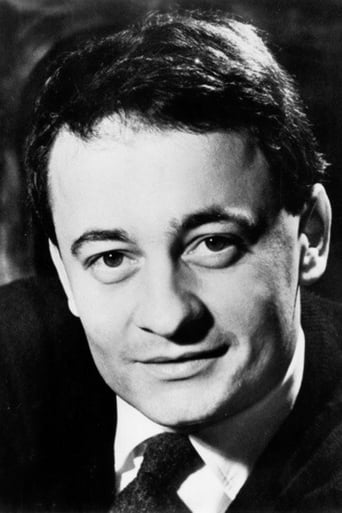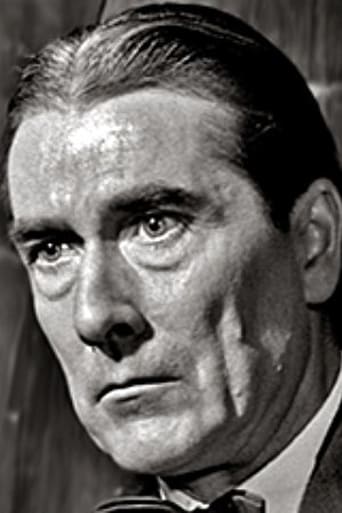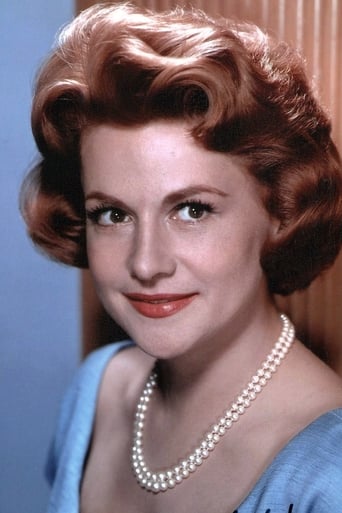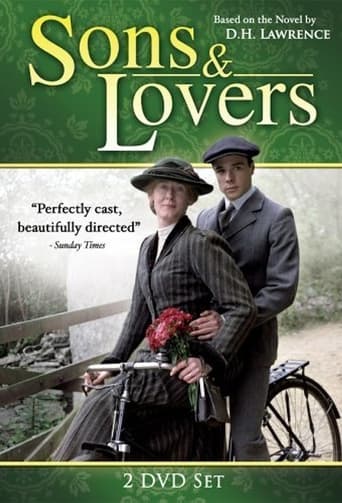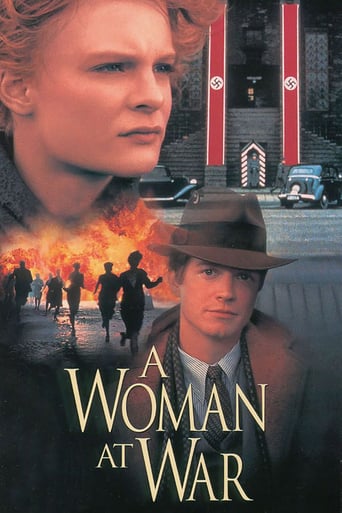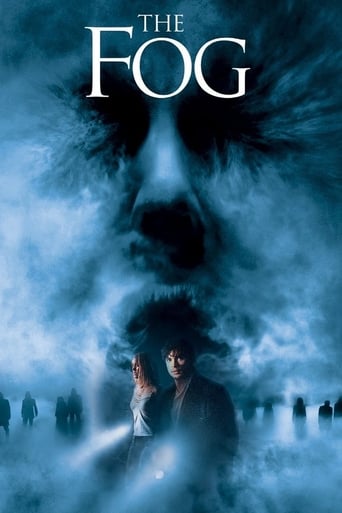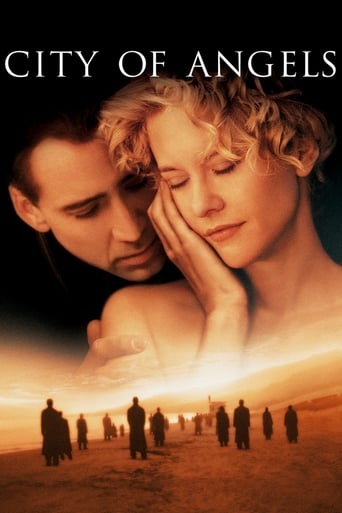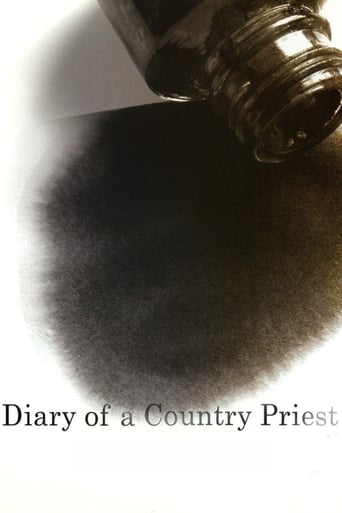
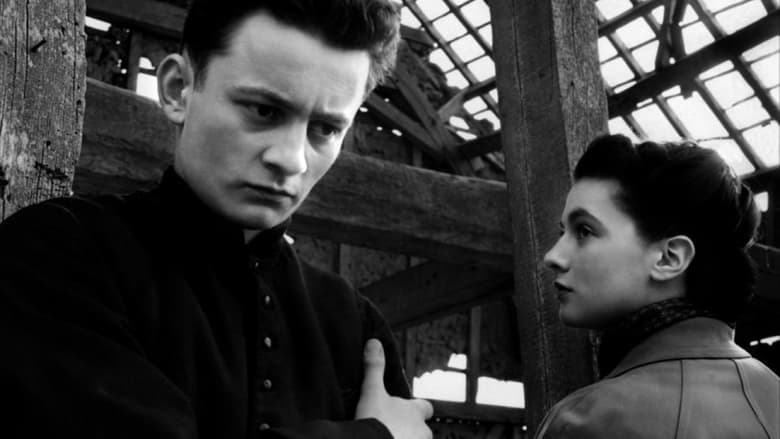
Diary of a Country Priest (1951)
An inexperienced, sickly priest shows up in the rural French community of Ambricourt, where he joins the community's clergy. But the locals don't take kindly to the priest, and his ascetic ways and unsociable demeanor make him an outcast. During Bible studies at the nearby girls school, he is continually mocked by his students. Then his attempt to intervene in a family feud backfires into a scandal. His failures, compounded with his declining health, begin to erode his faith.
Watch Trailer
Cast


Similar titles
Reviews
Powerful
At first rather annoying in its heavy emphasis on reenactments, this movie ultimately proves fascinating, simply because the complicated, highly dramatic tale it tells still almost defies belief.
A film with more than the usual spoiler issues. Talking about it in any detail feels akin to handing you a gift-wrapped present and saying, "I hope you like it -- It's a thriller about a diabolical secret experiment."
This movie feels like it was made purely to piss off people who want good shows
I found this French film in the book of 1001 Movies You Must See Before You Die, with it being rated five stars out of five by critics I was hoping I would agree with that recommendation as well, from director Robert Bresson (A Man Escaped, Pickpocket, Au Hasard Balthazar, L'Argent). Basically a young Priest (BAFTA nominated Claude Laydu) arrives at his new parish in Ambricourt, he is shunned and ridiculed by people in the village who do not accept his lifestyle and dietary choices (bread and wine). The older Priest of Torcy (Andre Guibert) talks to his younger colleague, his diet is becoming poor and he has a lack of prayer, this is because he is suffering serious stomach cancer, and the disease is causing his health to worsen. The young Priest is inexperienced and frail, but he wants to help dwellers, and he has got into a situation with a wealthy family of the recently deceased Countess (Marie- Monique Arkell), in the end of course the Priest dies from his cancer, but before dying he is absolved by a colleague. Also starring Nicole Ladmiral as Chantal, Nicole Maurey as Miss Louise, Jean Riveyre as Count, Jean Danet as Olivier, Antoine Balpêtré as Doctor Delbende, Martine Lemaire as Séraphita Dumontel, Gaston Séverin as Canon and Léon Arvel as Fabregars. To be honest, either I did not pay the fullest attention to film, or I just naturally did not find it as interesting as I hoped it would be, I certainly understood the basic parts of the story, and the leading actor was good, I'm not sure if I would watch it again to try and get it better, from what I did get out of it I found it an alright drama. Worth watching, in my opinion!
Tim Cawkwell said that this story "defines French Catholicism," and that is basically true. Unsurprisingly it is truer of the semi-epistolary novel than of the film, but as one who was outside the fold of traditional Catholicism for most of his life and is slowly being brought in I think it is safe to say that Cawkwell is on to something.Robert Bresson's film strips out most of the (already spare) political context sprinkled into the original story--"democratic priests" (read: Jansenists, Gallicans, Revolutionaries/leftists), the Church in distress, a moribund and apathetic Christianity (and while it is often supposed that the French uninterested have simply abandoned the Church, in some quarters this apathy remains a serious problem among practicing and believing Catholics)--to focus on the spiritual battle of a pious priest who should have been completely unremarkable and these days would be remarkably controversial for reasons not related to those depicted in the film: the Curé d'Ambricourt (Monsieur l'Abbé... qui ? We are never given his name) is of course, as a man, a sinner, but a thoroughly CATHOLIC priest. He is faithful to the essential magisterium and committed to his parish and his parishioners.It is, however, these strengths which serve to alienate the Curé from the people he serves and to engage the disapproval of his superiors. His weaknesses--an ever-so-slight tendency toward alcoholism resulting from heredity and the need to cover a rapidly encroaching health problem--merely serve as the pretext for this scandal. In the original novel, the Curé remarks that, "the monks suffer for souls; we the priests suffer by the souls!" and this, as many other truths in the book, ring true in the film. It is fascinating to see the treatment of this character: a priest, as an imperfect man, acts as the rightful Vicar of Christ all along the Way of the Cross, right up to the bitter end, and without being sacrosanct, imitates his Master in a manner fitting, without parallel, his religious vocation.Claude Laydu, the lead actor, was not in fact an actor but a comedian for children. I am told Bresson made it a point to use a non-actor and to have this latter repeat scenes over and over to remove any desire to "act." Indeed, he succeeded: the spiritual torment, interior and exterior, is ever-present on the Curé's face and we have no doubt that he suffers by souls, as did our Master. I must cut this review short, for there simply is not enough space in the world to say all the good things about this work. In an era of low morale, apathy, and outright apostasy, it is good to return to some inspiration.
There's a reason why Tarkovsky called this his favorite film. Only a handful of movies have ever been made with the power to move a viewer on so many levels with such a simplistic delivery.This story of a rookie priest serving a small, French parish is similar to Ingmar Bergman's "Winter Light" in that it addresses the trials of a priest in his quest to reach a largely unresponsive community as well as the priests faltering faith in God, but Bresson's work exceeds Bergman's in the fact that while "Winter Light" has 3 or 4 very powerful and moving scenes, "Diary of a Country Priest" has 13 or 14.The film is a brilliant exploration of how one man deals with failure in spite of his greatest efforts to succeed. It is special in a very spiritual way, for from the opening scene to the heartbreaking finale, the viewer watches the main character's idealistic outlook dashed by circumstances he couldn't possibly be prepared for. The fact that Bresson is known for coaxing flat and unexpressive performances from his actors makes the overwhelming effect of this character study all the more impressive. His work is evidence that great special effects or Oscar worthy performances are not always necessary ingredients for a captivating, powerful movie.
One reviewer has mentioned the importance of the fact that the priest exists mainly on bread and wine. This seems to me to point to the fundamental theme in the movie. Because the movie doesn't simply portray the isolation of the priest from the community but also their isolation from him. In feeling isolated from him they resent him and treat him with some unkindness.What is the priest's disease? Surely, it is not so much cancer as his own purity. He is too much a priest and too little a human being. He sees his suffering as being godliness. As though it is some necessary part of being a priest. He chooses to suffer for the sake of his religion, whereas Christ endured his suffering because he had no choice.The priest hardly ever smiles. He looks out upon sinful humanity from the purity of his little room at the top and there is a great gulf between himself and them. He cannot relate to them nor they to him. In practicing his religion with youthful earnestness he overlooks one important fact. Jesus was above all a human being. He surrounded himself with humans, ate and drank with them, laughed and wept with them. He certainly knew that they sinned, but he also understood the reasons for it, and saw his role as that of the shepherd who cajoles his flock along the correct path, rather than that of someone who draws lines in the sand and says "This you must not cross". Above all, Jesus had compassion, a quality not so much lacking as suppressed by the young priest. In doing so he is unable to offer the daughter of the manor the love (NOT romantic love) which she yearns for.


